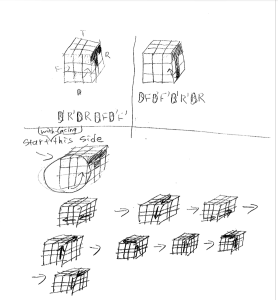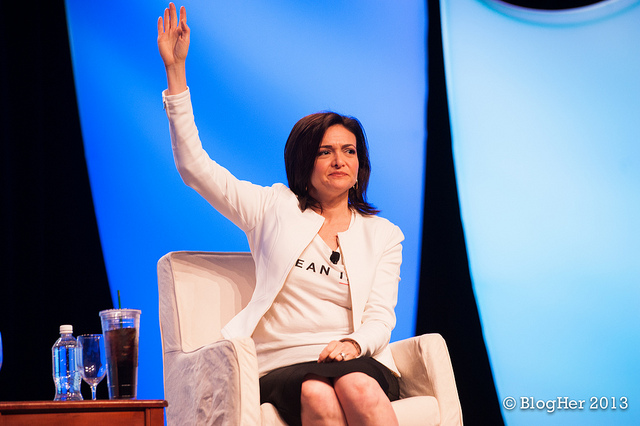The more I dig into Sheryl Sandberg’s LEAN IN, the more it feels like a gender studies book. I’m surprised at how surprised I am. I thought it was going to pull a reverse psychology trick on me, like, “Here’s this book that seems like it’s just a book about how women are treated differently in the work place… but it’s actually much more than that… except, it’s actually not.”
Perhaps I over thought the whole thing. Hardly outside the realm of possibilities.
I will say this for LEAN IN: the book opens with huge promise. Some highlights below, my notes in italics:
We hold ourselves back in ways both big and small, by lacking self-confidence, by not raising our hands, and by pulling back when we should be leaning in.
*how many times in mid-conversation, or a pitch, if I even get a hint that their eyes are glazing over, do I pull back? The moment I felt like I may be imposing, I back off. I’d rationalize it as “reading the room,” when what I should do is lean in more.
I rarely heard anything, however, about the ways I might hold myself back. These internal obstacles deserve a lot more attention.
*her message is: work on yourself, too. It’s not just the institution or the situation or a million external forces holding you back. Work on what you can control and it’ll reflect in the world around you.
I do not believe that there is one definition of success or happiness. Not all women want career. Not all women want children. Not all women want both.
*After discussion with Amy: it’s not important to have an equal “50-50 split” on household chores or whatever. Instead, have a common goal. Working towards a common purpose. Show respect and gratitude for your partner’s work.
I have heard these criticisms in the past and I know that I will hear them — and others — in the future. My hope is that my message will be judged on its merits. We can’t avoid this conversation. This issue transcends all of us.
*How to deal with criticism: your message will not resonate with everyone. If you put your thoughts out to the world to be judged, they will be. You can only hope that your message will be judged on its merits, no more and no less.
This week I’ve also been listening to two amazing pieces:
Bryan Elliot of Behind the Brand interview with Tim Ferriss
Chris Anderson’s Ted Talk: How Youtube is Driving Innovation
After less than a month of using Evernote, I maxed out my free account’s quota. So I purchased Evernote premium and spent an hour over the weekend geeking out hard core and eliminating mad papers from the apartment.

Now documents that’ve been taking up space and gathering dust are accessible and searchable on the computer (e.g., story ideas written on index cards, travel documents, how to solve a rubiks cube scribbled down 4 sheets of loose leaf).

Photo Credit: BlogHerAnnual

2 Comments
Hello Chris,
My name is Jamie Coffey and I am the Special Assistant to the President of Barnard College, Debora Spar. I am writing to you today regarding your blog and your knowledge as to the importance of women in leadership. I see you have already posted about Sheryl Sandberg’s book, Lean In, and I’d like to bring a unique perspective from a new book on this important topic to your attention.
My colleague Debora’s new book, Wonder Women: Sex, Power, and the Quest for Perfection, hit the shelves just a few weeks ago. Throughout Debora’s personal and professional experiences, she has asserted herself as a proponent of women’s education and leadership, which she highlights both in her new book and this recently published post here: http://wonderwomenthebook.com/2013/09/17/women-despite-being-leaders-are-still-not-wonder-women/
The ultimate goal of Debora’s work is to reach audiences just like yours with her message. Please consider sharing this post on your site and continuing to spark the important conversation that needs to be had.
Kindly,
Jamie